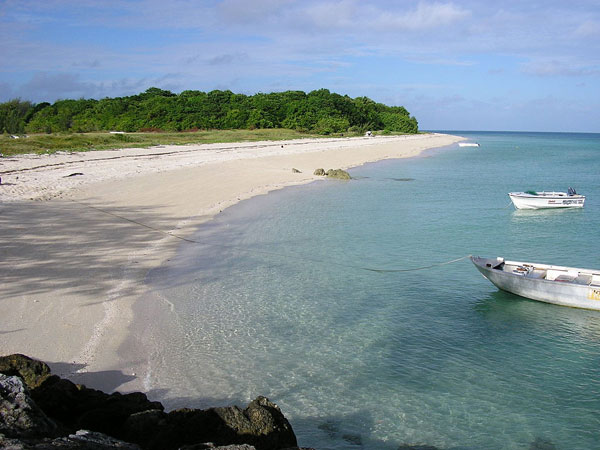
May 13, 2019; New York Times
In Australia, as in the United States, some of the boldest battles over climate change are being fought by indigenous peoples, who are disproportionately affected by the negative environmental impacts of human activity. This week, indigenous peoples from islands off the coast of Australia have brought a landmark lawsuit to the United Nations (UN), claiming that Australia’s failure to curb carbon emissions, and the resultant erosion of their lands and sacred spaces, “has violated their fundamental human rights, including the right to maintain their culture.”
Yessie Mosby, who lives on Masig Island, told the New York Times’ Livia Albeck-Ripka that while other parents and children go to the beach and collect shells, “we pick up remains,” because the rising tides are eroding the graves of his ancestors. The ocean has also washed out sacred ceremony sites.
Australia recently recognized the land rights of its indigenous peoples and how the land itself is directly tied to Aboriginal and indigenous culture and identity. A joint statement from British and Australian prime ministers Tony Blair and John Howard in 2000 recognized “the special connection that indigenous people have with ancestral remains, particularly where there are living descendants.” Dimas Toby, a councilor for Boigu Island, said that if people are forced to relocate due to rising tides, “We’ll go extinct, because we’ll have nowhere to practice [our culture].”
Sign up for our free newsletters
Subscribe to NPQ's newsletters to have our top stories delivered directly to your inbox.
By signing up, you agree to our privacy policy and terms of use, and to receive messages from NPQ and our partners.
The environmental justice movement claims “positive” rights and freedoms, such as the right to a healthy, stable environment. The claimants in this suit argue that because Australia has failed to meet emissions targets and move fast enough to a green economy, the country has failed to protect this right for their people. Islands like Masig, which averages about ten feet above sea level, are at real risk of disappearance when the sea levels rise. Albeck-Ripka writes,
According to the Intergovernmental Panel on Climate Change, a scientific body appointed by the world’s governments, global sea levels could rise by an average of up to 3.2 feet by 2100, which could force people from low-lying atolls in the Pacific Ocean, the Indian Ocean and the Torres Strait to evacuate.
Other groups have sued cities and fossil fuel companies over their failure to act fast enough on climate change, but this is the first such suit that’s been brought to the UN, according to Albeck-Ripka. As a non-coercive body, the UN can’t actually force Australia to do anything, but the case can make a public spectacle that would put pressure on Australia’s government. Just last week, the UN moved to protect indigenous climate activists, who overall face a disproportionate level of threats and violence.—Erin Rubin













